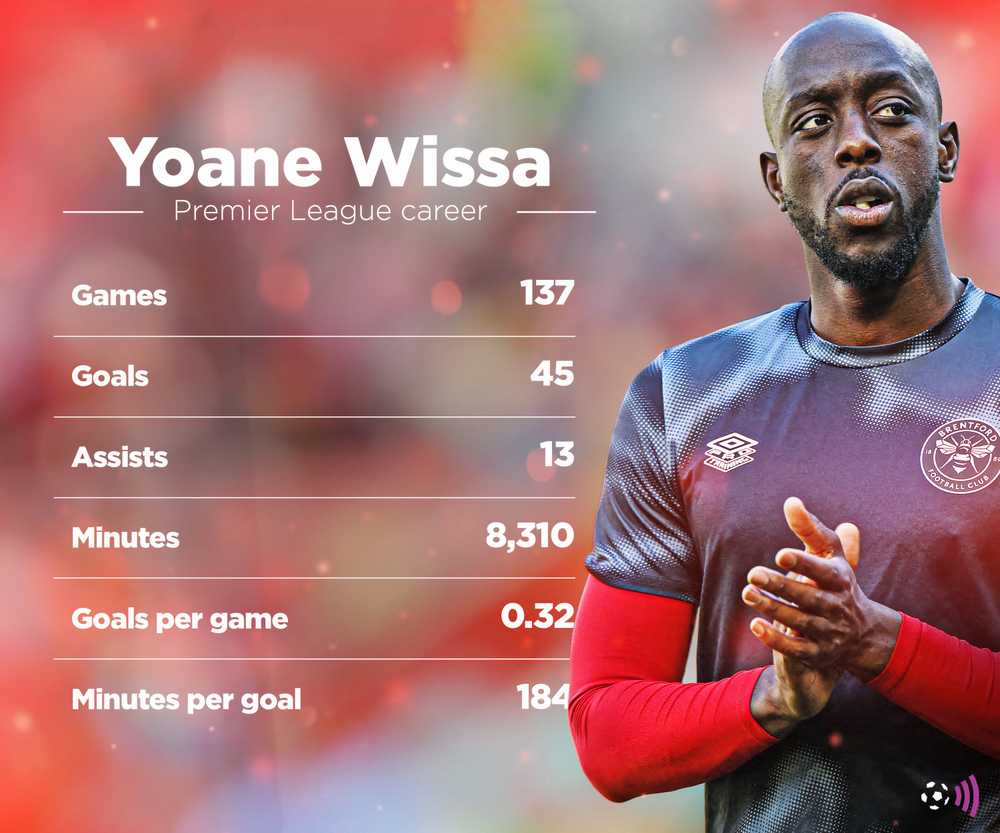The ongoing transfer negotiations between Newcastle United and Brentford for striker Yoane Wissa have reached a critical stage, with both clubs maintaining firm positions that show no immediate signs of softening.
According to information from reliable sources, Brentford have once again rejected Newcastle’s latest approach for the Democratic Republic of Congo international, maintaining their £50 million valuation despite the player’s clear desire to move to St James’ Park.
Newcastle’s most recent offer, their third attempt to secure the striker, totaled £40 million when including potential add-ons to the £35 million base fee.
This proposal was formally turned down on August 20th, continuing a pattern of rejected bids that has characterized this transfer saga throughout the summer.
The situation has become increasingly complicated by Wissa’s own actions, as the forward has attempted to force the move by refusing to train under new manager Keith Andrews, demonstrating his strong preference for joining the Magpies.

The context surrounding Brentford’s position has evolved since earlier in the window. Initial reports had suggested that the signing of Dango Ouattara from Bournemouth would facilitate Wissa’s departure, but the club’s perspective has shifted.
Ouattara is now viewed primarily as a replacement for Bryan Mbeumo rather than Wissa, changing the calculus for the West London club.
This adjustment in their internal planning has strengthened Brentford’s resolve to hold out for their full asking price.
Despite the current impasse, sources indicate that Newcastle are prepared to make a fourth attempt to secure their target.
The club’s persistence reflects both their need for attacking reinforcements and Wissa’s status as their preferred option to bolster Eddie Howe’s forward line.
The 28-year-old has established himself as a proven Premier League goalscorer, making him an attractive option despite the significant financial commitment required.

The transfer situation creates interesting parallels with Newcastle’s own circumstances involving Alexander Isak.
The Swedish striker has adopted a similar approach to Wissa in attempting to force a move away from his current club, with Liverpool identified as his desired destination.
This mirroring of situations creates a complex chain of potential transactions, with Newcastle understandably reluctant to sanction Isak’s departure until they have secured adequate replacements.
Brentford’s firm stance is reinforced by several factors beyond their internal squad planning. The club’s strong negotiating position is strengthened by Wissa’s contract situation, which provides them with security despite the player’s unhappiness.
Additionally, the limited time remaining in the transfer window reduces pressure on Brentford to compromise, as they can reasonably argue that retaining their key striker outweighs the benefits of a late sale unless their valuation is met.
For Newcastle, the pursuit of Wissa represents part of a broader strategy to address their attacking needs following Callum Wilson’s departure.
The club’s recruitment team has identified the Brentford forward as capable of providing both immediate impact and tactical flexibility, with his ability to operate across the front line offering valuable options for Howe’s system.
The coming days will prove crucial in determining whether either club blinks in this high-stakes negotiation.
Newcastle must decide whether to meet Brentford’s asking price or explore alternative targets, while Brentford face the calculation of whether holding firm serves their long-term interests better than compromising to secure a substantial fee for an unhappy player.
This transfer standoff reflects the complex dynamics of the modern football market, where player power, club finances, and tactical needs intersect to create challenging negotiations.
The resolution—whether through compromise, increased offers, or collapsed talks—will significantly impact both clubs’ prospects for the season ahead and their broader transfer strategies.

